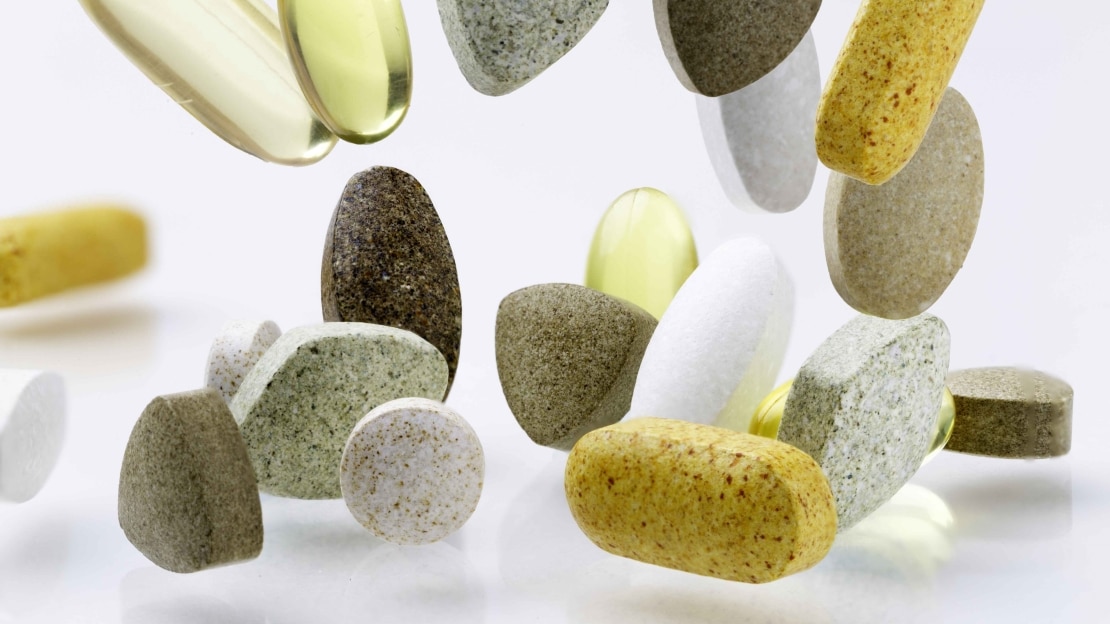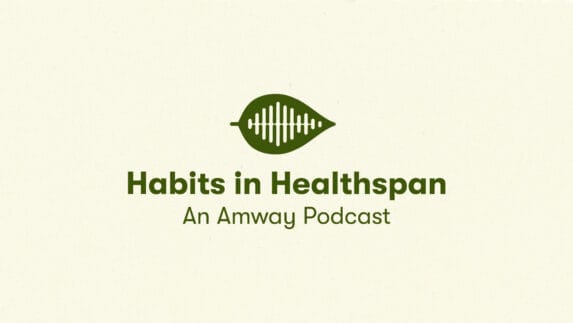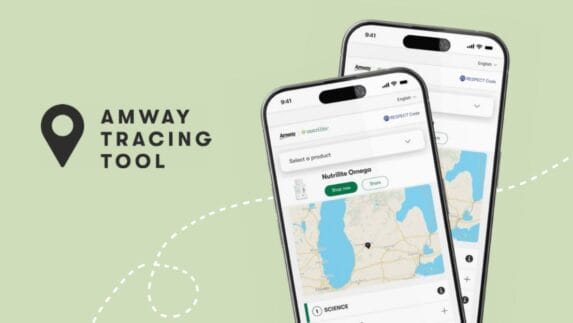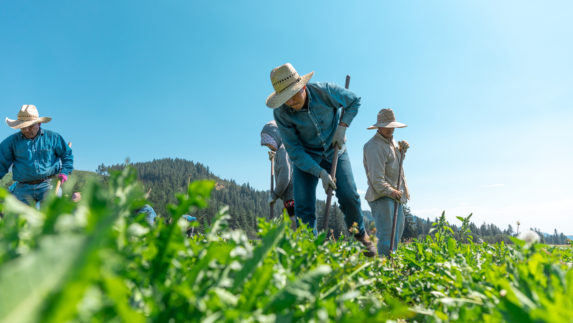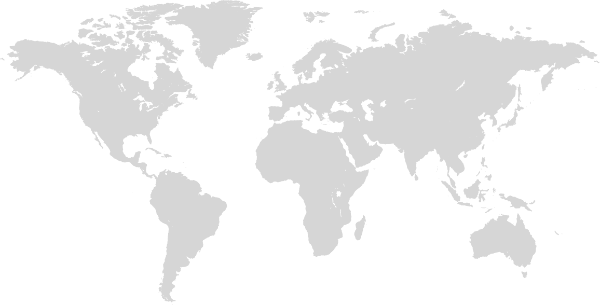Sales of dietary supplements, herbal supplements, and other botanical-based products have increased every year since 2009, and they continue to rise. One reason for this is the simple fact that what we eat matters. What we put on our skin matters. What we put in our environment matters.
But how can we tell if the herbal supplements and botanicals we want to use are high quality? How can we be sure we’re getting what we’re paying for?
To answer that question, we’ll need to dive into some science, some regulations, and some other important information about things like traceability. Let’s start with the basics, and then we’ll help you learn some specific ways to identify high-quality products.
What Are Herbs and Botanicals?
“Botanicals” is a broad term that refers to parts of plants, substances derived from plants, or even whole plants. When you’re eating a grape, you’re consuming a botanical: the fruit of a grape vine. A grape itself is also made up of botanicals like seeds, peels, and perhaps even a stray leaf. If you’ve had a cup of tea recently, you’ve enjoyed a “botanical infusion,” which tells us a little more about how the botanicals (tea leaves, flowers, etc.) were prepared (by steeping them in hot water).
All herbs are botanicals, but not all botanicals are herbs. The term “herbs” usually refers to botanicals, such as the leaves or flowers of plants, used for their fragrant, flavorful, or other useful properties. Defining exactly what counts as an “herb” is not always easy, though. Context matters. In the culinary world, for example, we might distinguish herbs (leaves and flowers) from spices (bark, roots, fruits, or seeds). In scientific terms, an herb is a “herbaceous plant” or “vascular plant that does not have true woody tissues.”
With almost any definition of “herb,” we end up leaving out some plants we typically include in that category (like bay leaves, rosemary, or parsley) and including some plants we probably wouldn’t think of (like banana trees and pineapple plants).
However you define them, there’s a good reason we are interested in herbs and botanicals.
Why Are Botanicals and Herbs Important?
The primary reason most people care about herbs and botanicals is because they have certain properties, and some of those properties are beneficial to humans.
For example, lavender has been used for a variety of purposes for over 2,500 years. The ancient Egyptians used it in the mummification process, the ancient Romans used it in their bathhouses, and people used it throughout the Medieval and Renaissance periods for cleaning and bathing because of lavender’s pleasant scent. Today, lavender can be found in a variety of products intended to help people relax.
But it is possible to get too much of a good thing. The benefits of botanicals can become dangers if they are not grown under certain conditions, prepared in specific ways, or delivered in the right amounts.
Because the dose and form of botanical preparations play important roles in their safety, laws and regulations have been put in place — and new scientific research about botanicals is always underway. One of the leading spaces for sharing cutting edge research and getting information directly from the U.S. Food and Drug Administration (FDA) and National Institutes of Health (NIH) is the Oxford International Conference on the Science of Botanicals (ICSB).
The Oxford International Conference on the Science of Botanicals
The National Center for Natural Products Research (NCNPR) at the University of Mississippi is recognized by the FDA as a Center of Excellence in botanical dietary supplement science. Every year, international leaders and experts in the research, development, testing, regulation, and commercialization of botanical ingredients come together at the ICSB.
In addition to close collaboration with the FDA, many other international institutions co-sponsor the conference, including:
- The Shanghai Institute of Materia Medica at the Chinese Academy of Sciences
- The Council of Scientific and Industrial Research (CSIR) in India
- The Ministry of Indigenous Medicine in Sri Lanka
- The American Society of Pharmacognosy (ASP)
- The Society for Medicinal Plant Research (GA) in Germany
- The Korean Society of Pharmacognosy (KSP)
- The Japanese Society of Pharmacognosy (JSP)
The conference covers a wide range of topics every year. For example, attendees get updates about health fraud trends directly from the FDA, receive new references and resources from the NIH, learn about brand new research into specific botanicals and their preparation, and much more.
Our Innovation and Science experts at Amway regularly attend and present at the ICSB each year. In 2023, for example, Senior Toxicologist Deval C. Patel presented on the “History of Safe Human Use in Risk Assessment of Botanicals in Dietary Supplements.” This is an important topic because botanicals are complex and contain many different compounds, and Amway is continually exploring novel approaches to assess the safety of our products and sharing our findings with regulators and other pioneers in this field.
We also grow many botanicals on Amway’s certified organic farms. That means we own every step of the process from seed to supplement, and that gives us direct, firsthand access to empirical data about a variety of things: the exact genus, species and variety of our plants cultivated; what parts of the plant are used; the exact place of harvesting; any processing and preparation the botanicals have undergone; and much more.
The richness of the data and documentation from Amway’s process positions us as a global leader in the botanicals space and allows us to share our expertise and understanding with academic institutions, regulatory bodies, and other industry leaders.
And we also love to share our knowledge with you! We want everyone to be informed about the products they’re using.
How to Identify High-Quality Supplements and Products
The recurring session about health fraud at the ICSB event each year demonstrates how important it is to evaluate the products you’re consuming and using. The FDA requires manufacturers to follow Current Good Manufacturing Practices (CGMP) as well as other laws. However, the FDA does not evaluate the effectiveness, safety, or quality of Globally, the FDA is a leader in regulatory oversight, but it’s also important to remember that the laws and guidelines around supplements and cosmetics vary from country to country.
So, how can you tell if you’re buying a high-quality product? And how can you be sure you’re getting exactly what you’re looking for? Here are a few important steps you can take.
1. See If a Product Is Known to Be a Fraud or Fake
Many regulatory bodies track health fraud and the companies that commit health fraud. For example, the FDA has a searchable database of fraudulent health products. If you find a product in there, you can pass on it right away.
2. Read the Label and Verify It With a Third Party
Remember those FDA regulations we mentioned earlier? Some of those apply to supplement labels. For example, labels need to:
- Feature the product name.
- State that the product is a dietary supplement.
- Provide the name and location of the manufacturer.
- Include a standard “Supplement Facts” panel (like a “Nutrition Facts” panel on foods) that shows the names and quantities of various ingredients, the recommended serving size, and the number of servings per container.
- List any other ingredients in an ingredients statement.
- List an address or phone number to report adverse events.
For any dietary supplement product sold in the United States, manufacturers are also encouraged to submit the label to the NIH, and you can search for the product label in the NIH Dietary Supplement Label Database.
If information is missing from the label or you can’t find it in the NIH database, proceed with caution.
3. Look for Products That Have Been Certified by a Third Party
Third-party testing is not required by law, and it can be costly. Companies that seek out third-party testing are putting their money where their mouth is. They’re telling you that they stand by their products and are willing to have them reviewed by outside experts to evaluate their quality and prove that their product’s contents match the label declarations.
One of the most well-known testing companies is NSF International. NSF and other organizations will provide certification that:
- The label accurately and precisely describes what is in the product and in what amounts.
- Retested products consistently meet or exceed quality standards.
- No unlisted ingredients (like fillers) are included in the product.
- Harmful levels of contaminants (like heavy metals, pesticides, or microorganisms) are not present in the product.
A variety of other organizations will test and/or certify products at different stages of development as well. For example, Amway’s Nutrilite Omega and Nutrilite Advanced Omega products are certified by Friend of the Sea® because the omega-3 in those products is sustainably sourced and traceable. Nutrilite is also the only global vitamin and dietary supplement brand to grow, harvest, and process plants on its own certified organic farms,* which has been independently verified by Euromonitor International.
If the product you’re interested in has been tested and certified by a reputable third party, it is a strong indicator that you are getting exactly what you are paying for.
* Source: Euromonitor International Limited: Based on a 2021 review of global Vitamin and Dietary supplement manufacturers; their ownership of the entire production process, from farm to manufacturing, in addition to organic certification of products. Euromonitor does not assume responsibility to any third party in respect to this claim.
4. See If the Dietary Supplement Is Traceable
What is traceability? It’s all about knowing where the ingredients inside a product come from and how they are processed. Traceability allows you to transparently follow a product and its ingredients all the way through the supply chain.
Traceability also helps consumers understand the different ways that a manufacturer affects the environment as well as their local and even global communities.
If a manufacturer is not tracing where their ingredients are from or they can’t communicate that information to consumers, you may want to look elsewhere.
As an example, you can trace the botanical ingredients in Nutrilite products from seed to supplement.
Amway: A Global Leader in Dietary Supplement Quality
There’s a lot to discuss when it comes to the safety and quality of dietary supplements: the science, the agriculture, the testing, the laws and regulations, how to get the information you need, and more.
At Amway, our Innovation and Science Teams are continually finding new ways to ensure that our customers are getting high-quality products that deliver exactly what we promise – or better.
To learn more about our brands and products, choose the Amway market closest to you.
